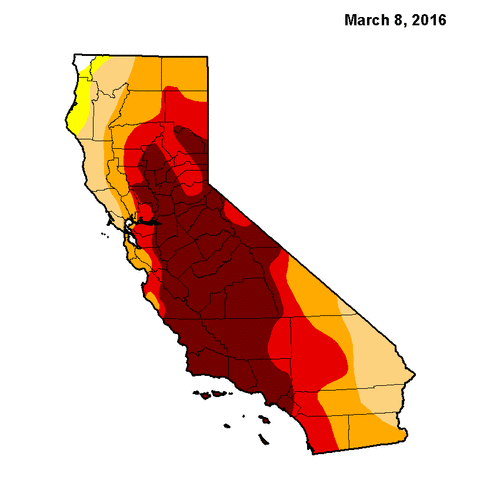
Climate Change
Human activities over the past century have resulted in releases of large quantities of carbon dioxide and other greenhouse gases into the atmosphere, leading to the onset of significant changes in the earth's climate that will have substantial impacts on water resources, including water quality. More specifically, the various predicted alterations to temperatures and precipitation could significantly affect water supplies in our region, as drought periods become more severe and snowpack levels decrease, leading to depleted groundwater levels and decreasing amounts of imported water available to the region.
In addition to water quantity, predicted changes to weather patterns and sea level could also drastically alter hydrological and ecosystem processes in the region. Such impacts could manifest in multiple ways, such as decreases in stream flow, reductions in, and changes to, aquatic habitats, increases in surface water temperature, increases in pollutant levels, sedimentation, and algal growth, and changes in salinity levels and acidification in coastal areas. These impacts could affect many beneficial uses of our waters, including those protecting ecological habitats, recreational uses and commercial practices. Because preserving water quality is essential to protect both human populations and natural ecosystems, and to ensure their prosperity into the future, it is imperative to assess these impacts, and to develop strategies to adapt to the upcoming changes and mitigate their effects on water quality and on the beneficial uses of our waters.
As part of its efforts to address these threats to water quality, the Los Angeles Water Board developed an initial "Framework for Climate Change Adaptation and Mitigation" for the Los Angeles region. This document takes a first look at impacts of climate on water supply and water quality for various waterbody types of the region, as well as through the lenses of the Los Angeles Water Board's programs, and begins a discussion on issues that will need to be considered and tackled over time.

- Report: Vulnerability of Stream Biological Communities in Los Angeles and Ventura Counties to Climate Change Induced Alterations of Flow and Temperature
- Los Angeles Region Framework for Climate Change Adaptation and Mitigation Part 2
-
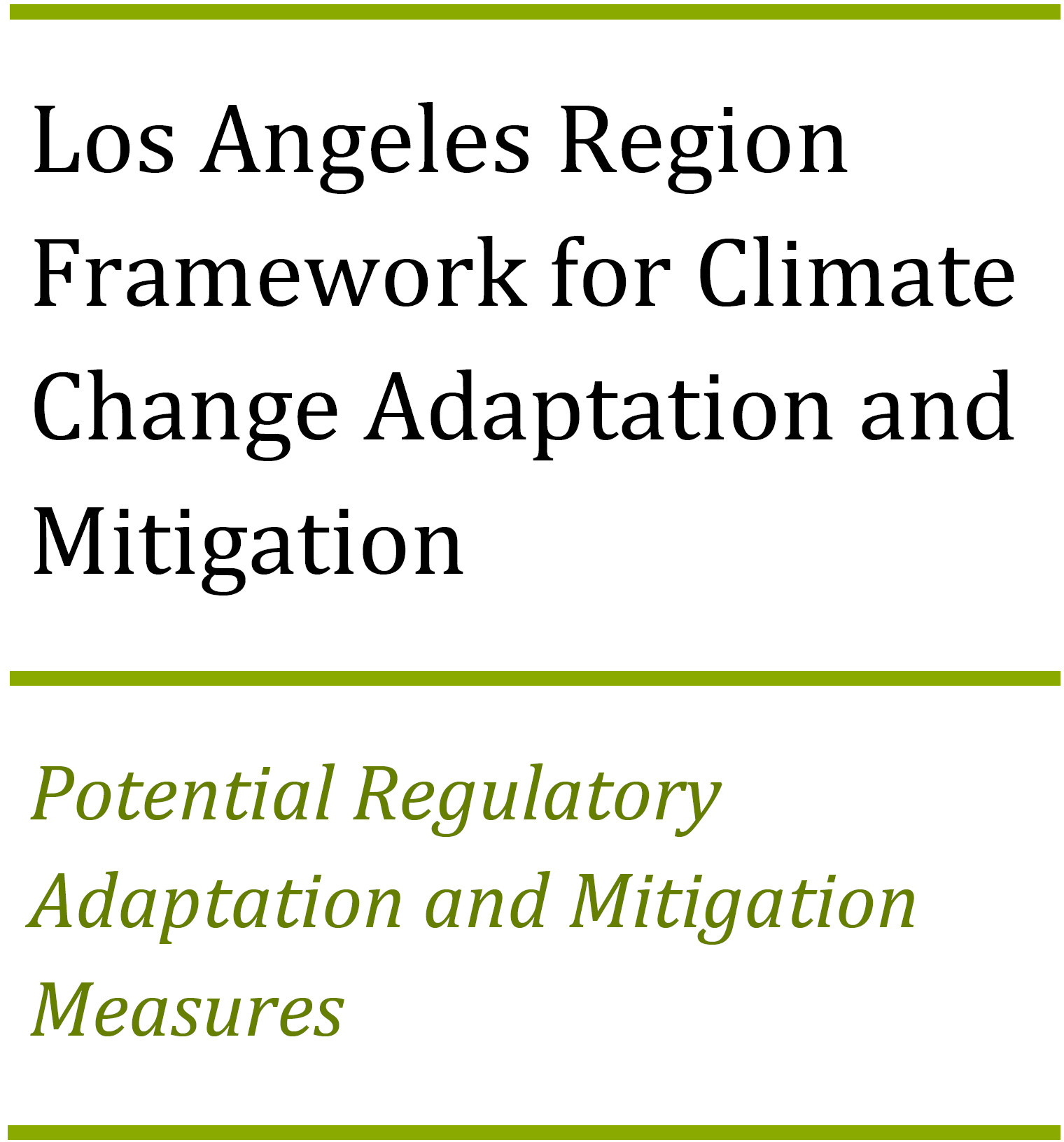
- Resolution to Prioritize Actions to Adapt to and Mitigate the Impacts of Climate Change on the Los Angeles Region's Water Resources and Associated Beneficial Uses
May 10, 2018
- Public Workshop to Discuss the Development of the Regional Water Board Climate Change Strategy - August 8, 2017
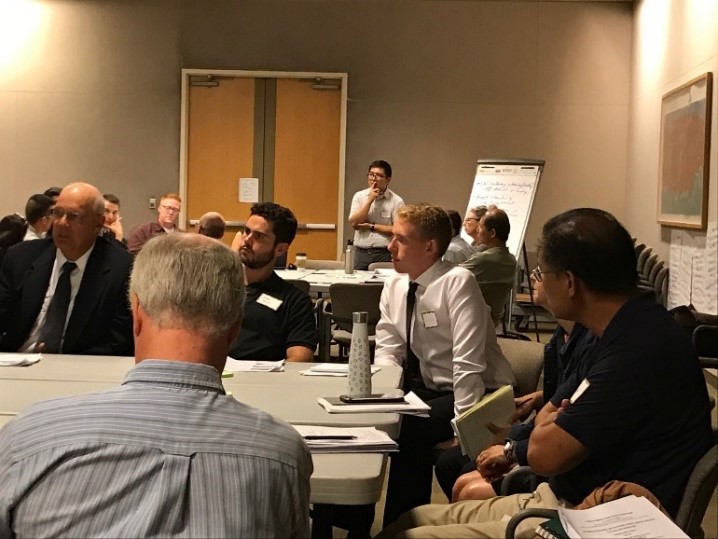 On August 8, 2017, the Regional Water Board hosted a stakeholder workshop to discuss the development of a Regional Climate Change Strategy. The purpose of the workshop was to: 1) present the process that has been initiated to define potential actions to address climate change within the Regional Water Board's programs and 2) seek input on how climate change will affect dischargers and other stakeholders and consider the relationship between these impacts and how the Board regulates discharges.
On August 8, 2017, the Regional Water Board hosted a stakeholder workshop to discuss the development of a Regional Climate Change Strategy. The purpose of the workshop was to: 1) present the process that has been initiated to define potential actions to address climate change within the Regional Water Board's programs and 2) seek input on how climate change will affect dischargers and other stakeholders and consider the relationship between these impacts and how the Board regulates discharges. Chief Deputy Executive Officer Deb Smith gave an introduction, outlining the work that the Regional Water Board has done so far to address climate change. Dr. Céline Gallon followed with a presentation summarizing the expected effects of climate change on water quality and beneficial uses, as well as the approach the Regional Water Board has been taking to develop a comprehensive response to climate change within its programs. Following those presentations, stakeholders divided into discussion groups under four different topics: habitat/ecology, stormwater, groundwater, and infrastructure. For each topic, participants discussed: 1) how the various impacts of climate change may affect facilities, the regulatory environment, and our water resources and associated beneficial uses; 2) how the Regional Water Board could take these issues into consideration, and 3) how the Regional Water Board could take into account environmental justice when dealing with these issues.
Chief Deputy Executive Officer Deb Smith gave an introduction, outlining the work that the Regional Water Board has done so far to address climate change. Dr. Céline Gallon followed with a presentation summarizing the expected effects of climate change on water quality and beneficial uses, as well as the approach the Regional Water Board has been taking to develop a comprehensive response to climate change within its programs. Following those presentations, stakeholders divided into discussion groups under four different topics: habitat/ecology, stormwater, groundwater, and infrastructure. For each topic, participants discussed: 1) how the various impacts of climate change may affect facilities, the regulatory environment, and our water resources and associated beneficial uses; 2) how the Regional Water Board could take these issues into consideration, and 3) how the Regional Water Board could take into account environmental justice when dealing with these issues. - Climate Change Strategy - Notice of Public Workshop Review of climate change predictions for the Los Angeles Area. Information Item at the Regional Water Board Meeting - Feb 11, 2016
- A Climate Change Perspective on Surface Water Availability for Los Angeles. Presentation by Dr. Alex Hall (UCLA)
- Projected Climate Change Impacts to the Los Angeles and Ventura County Coastline. Presentation by Dr. Patrick Barnard (USGS)
- AdaptLA: Sea Level Rise and Coastal Impacts Planning for the L.A. Region. Presentation by Dr. Juliette Hart (USC)
- Los Angeles Region Framework for Climate Change Adaptation and Mitigation Part 1
-
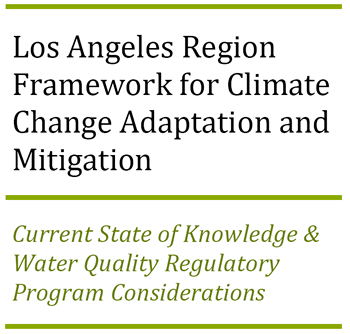
- Climate and Water Quality Standards presentation - July 2014
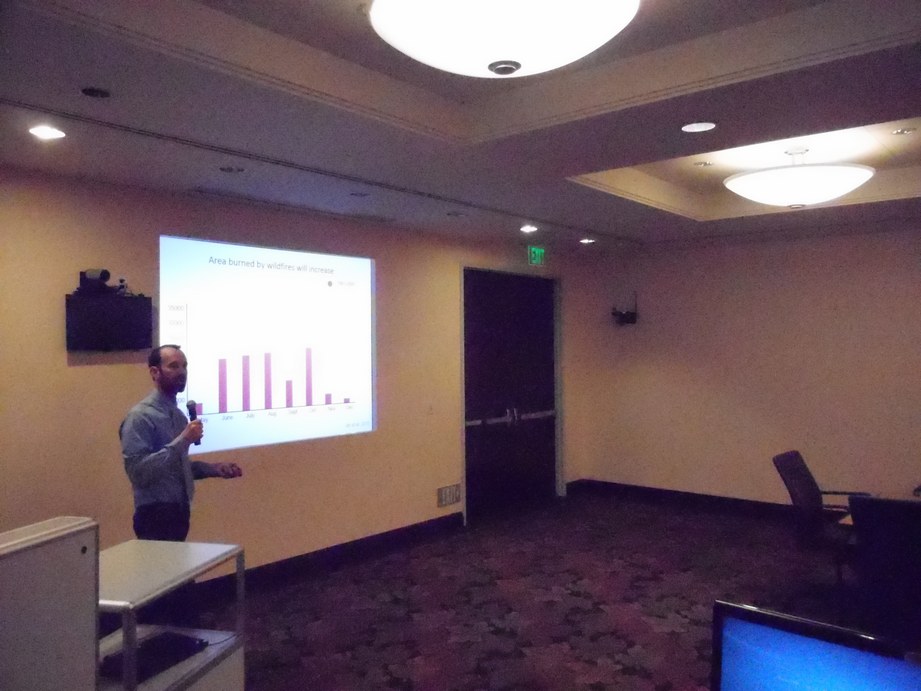
This information item was organized to share with the Board and stakeholders in the region the results of the latest research assessing climate change effects on a regional level. Presentations by Dr. Alex Hall (UCLA), Dr. Patrick Barnard (USGS) and Dr. Juliette Hart (USC) introduced the results of local models describing the effects of climate change on temperatures, precipitations, runoff and snowpack in our region, as well as the potential impacts of sea level rise and storms in coastal zones. Those results were discussed in the context of future water availability, vulnerability assessment and possible adaptation strategies for the Region.
- Cal-Adapt
- California Air Resources Board. Climate Change Programs.
- California Coastal Commission
- California Department of Water Resources. Climate Change Portal.
- California Natural Resources Agency (CNRA). Safeguarding California.
- California Natural Resources Agency (CNRA). California Water Action Plan.
- Intergovernmental Panel on Climate Change (IPCC)
- Office for Environmental Health Hazard Assessment (OEHHA). Environmental Protection Indicators for California (EPIC).
- State of California Coastal Conservancy
- State Water Resources Control Board. Climate Change page
- State Water Resources Control Board. Drought Year Action and Information page.
- US Climate Resilience Toolkit
- US Environmental Protection Agency (USEPA). Climate Change Portal.

